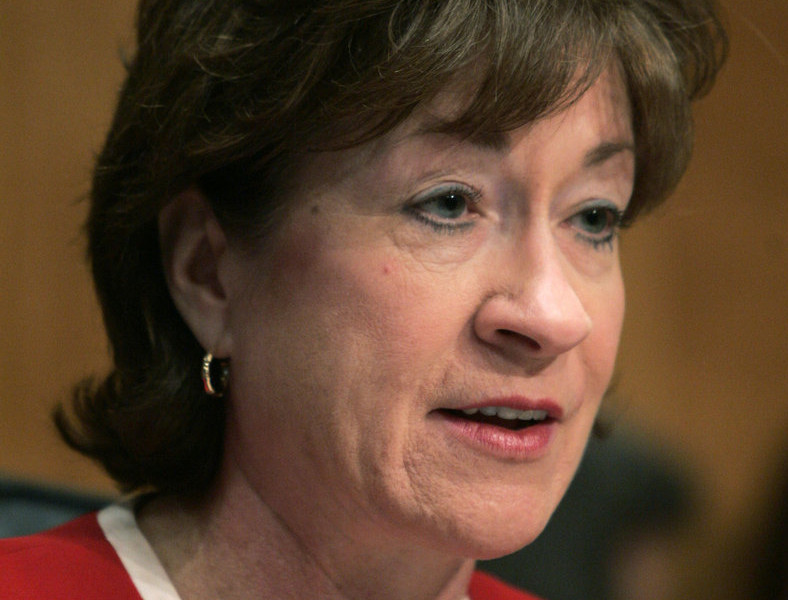WASHINGTON – A proposal by Senate Democrats to repeal the military’s 17-year-old ban on openly gay troops stalled Wednesday after a key Republican refused to sign on and Democrats feared a critical test vote would fail.
Senate Majority Leader Harry Reid continued to talk with Republican Sen. Susan Collins of Maine about how he could win her support, Reid spokesman Jim Manley said. Collins’ vote is considered critical to the monthslong effort by Democrats to repeal the 1993 law known as “don’t ask, don’t tell.”
“We’re getting close, but negotiations are still ongoing,” Manley said.
A provision that would overturn the law — contingent upon certification by the president and the Pentagon that doing so won’t hurt military effectiveness — is included in a broader defense policy bill.
Collins supports overturning the military ban but has sided with her GOP colleagues in objecting to the defense bill on procedural grounds. She wants more time devoted to debate and says the Senate should consider tax cuts first.
“Without a fair process, the motion to proceed to the bill would likely fail in the U.S. Senate,” Collins said in a statement issued late Wednesday.
Reid said Republicans were running out of excuses to block the bill. “Throwing up these artificial roadblocks is just foolishness,” he told reporters.
Still, Reid’s decision to try to force a vote on repeal had been considered a gamble. If it failed, repeal would be considered dead for the year. The effort would then face an uphill battle come January when Republicans take control of the House and increase their numbers in the Senate.
At least four Senate Republicans — Collins, Lisa Murkowski of Alaska, Scott Brown of Massachusetts and John Ensign of Nevada — have said they think the law should be overturned.
Conservative Democrats who were initially reluctant on the matter, including Sen. Mark Pryor of Arkansas, have also said they would vote to lift the ban now that a Pentagon study concluded it wouldn’t hurt military effectiveness.
Advocates for repeal said privately they thought Wednesday’s vote was doomed to fail and expressed relief that more time would be devoted to negotiations. Publicly, they called on President Obama to use his power to ensure the law is repealed by the end of the month.
White House spokesman Robert Gibbs said he was optimistic repeal would happen.
Send questions/comments to the editors.



Success. Please wait for the page to reload. If the page does not reload within 5 seconds, please refresh the page.
Enter your email and password to access comments.
Hi, to comment on stories you must . This profile is in addition to your subscription and website login.
Already have a commenting profile? .
Invalid username/password.
Please check your email to confirm and complete your registration.
Only subscribers are eligible to post comments. Please subscribe or login first for digital access. Here’s why.
Use the form below to reset your password. When you've submitted your account email, we will send an email with a reset code.